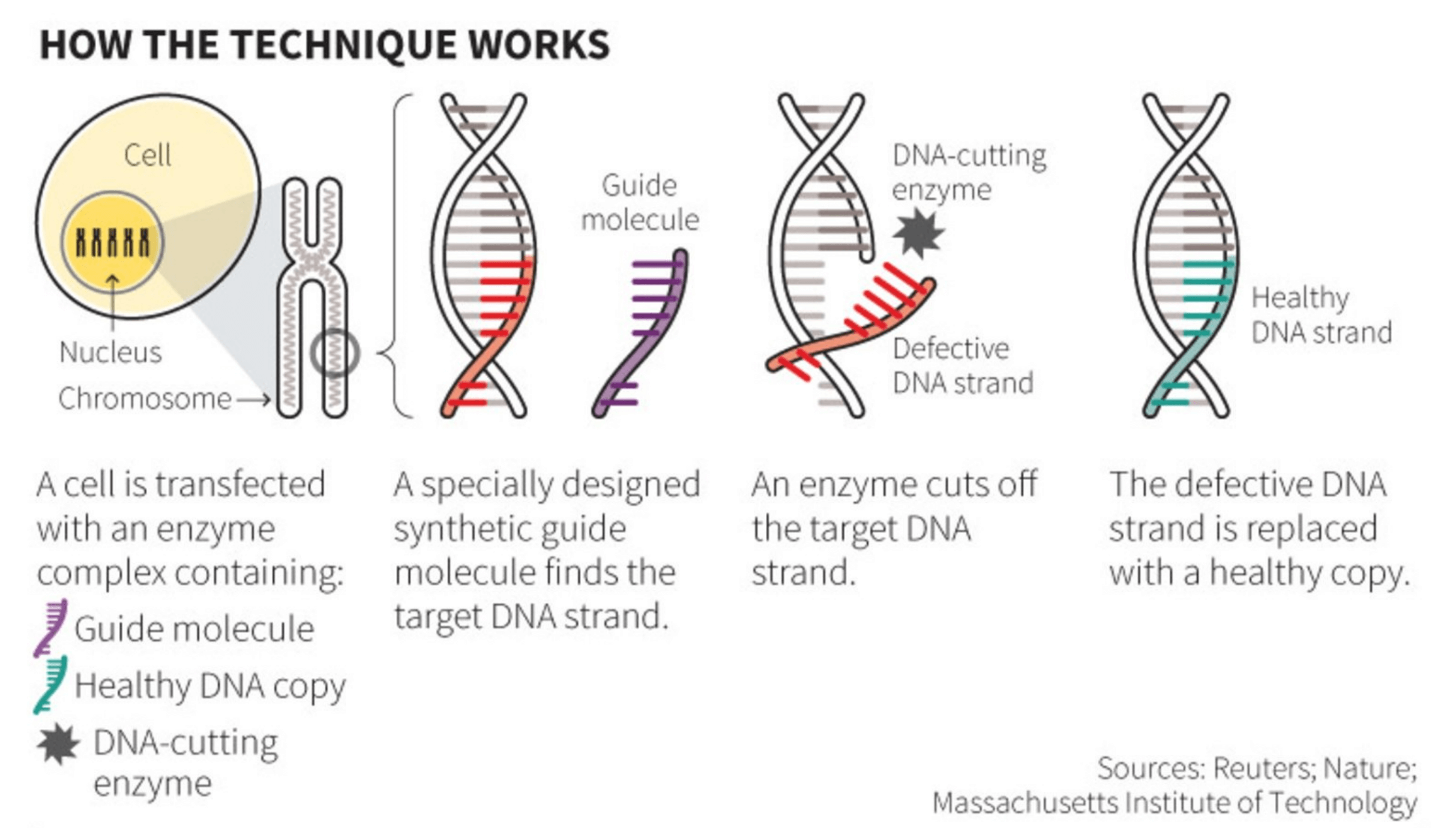Media has a way of portraying science fiction and scientific
technologies in an outrageous way, like changing humans into creatures through
the use of CRISPR (clustered regularly interspaced short palindromic repeats)
technology. CRISPR was seen in bacterial defense and was used to destroy DNA
that entered the bacteria, but is now used to edit and alter specific DNA
sequences. In humans, though, CRISPR can ultimately be used to treat improve
health, improve food, treat cancers and diseases and potentially suppress the
effect of environmental pollution.
How CRISPR works.
However, concerns are arising on the problems with CRISPR.
Some research suggests that the use of CRISPR at a specific sequence can damage
DNA further along the chromosome, and this makes some caution to be needed when
using CRISPR in clinical settings.
In humans, some trials have been planned to help treat human
diseases. Two main trials have been planned in order to treat blood diseases
(beta-thalassemia and sickle cell anemia). The trials use gene editing outside
of the patient’s body (ex vivo). The thought is that researchers will take
hematopoietic blood cells and edit them and “correct” them. Once the genes are
corrected and the cells are normal, they will be reintroduced into the
patient’s body to cure the disease. This theory has been used in China to test
treatments on human cancers. Using immune T cells, researchers use CRISPR to
stop the cells from producing a PD-1 protein, and allows T cells to now attack cancer cells.
Although in theory these treatments seem flawless, there are
some concerns. Some studies suggest that using CRISPR may not be as effective
as thought and have some side effects. One study says that when Cas9 cuts the
DNA, it can potentially cause it to not be able to edit the DNA anymore. A
bigger concern is about human exposure to CRISPR. Since CRISPR is a protein
found in bacteria, many individuals may have already been exposed to it from
bacterial infections, which causes the body to develop an immune response to
the protein and therefore are unable to benefit from the CRISPR therapies. The
last concern is that CRISPR is not totally accurate and may have the potential
to cut the wrong DNA sites and cause disease.

I agree that CRISPR is an innovative tool in genetics right now, but I believe that there should be a way to prevent the splicing of non-targeted DNA to fully test on human DNA. Once perfected then I do believe that this is a way in which we can control human diseases especially those that are inherited.
ReplyDelete